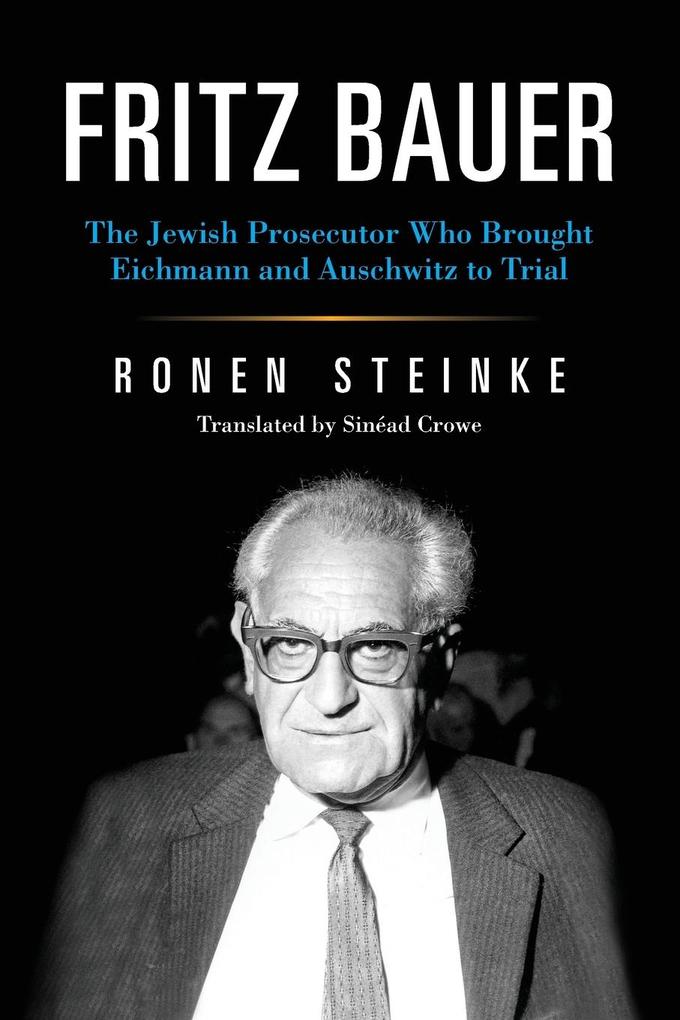Bücher versandkostenfrei*100 Tage RückgaberechtAbholung in der Wunschfiliale
10% Rabatt10 auf Tonieboxen, Figuren & Zubehör mit dem Gutscheincode: TONIE10
Jetzt einlösen
mehr erfahren
Zustellung: Mi, 09.04. - Di, 15.04.
Versand in 3-4 Wochen
VersandkostenfreiBestellen & in Filiale abholen:
German Jewish judge and prosecutor Fritz Bauer (1903-1968) played a key role in the arrest of Adolf Eichmann and the initiation of the Frankfurt Auschwitz trials. Author Ronen Steinke tells this remarkable story while sensitively exploring the many contributions Bauer made to the postwar German justice system. As it sheds light on Bauer's Jewish identity and the role it played in these trials and his later career, Steinke's deft narrative contributes to the larger story of Jewishness in postwar Germany. Examining latent antisemitism during this period as well as Jewish responses to renewed German cultural identity and politics, Steinke also explores Bauer's personal and family life and private struggles, including his participation in debates against the criminalization of homosexuality--a fact that only came to light after his death in 1968. This new biography reveals how one individual's determination, religion, and dedication to the rule of law formed an important foundation for German post war society.
Inhaltsverzeichnis
Foreword by Andreas Vosskuhle
Acknowledgments
1. The German who Brought Eichmann to Justice: His Secret
2. The Secret Jewish Life of Post-War Germany's Most Controversial Jurist
3. The University Years (1921-1925): A Gifted Student
4. Judge in the Weimar Republic: Bauer's Attempts to Ward off Catastrophe
5. Concentration Camp and Exile (1933-1949)
6. Rehabilitating the Plotters of July 20, 1944
7. "Murderers Among Us": The Psychology of a Prosecutor
8. Bauer's Greatest Achievement: The Auschwitz Trial (1963-1965)
9. The Fight for Gay Rights: Bauer's Dilemma
10. Bauer's Path to Isolation
11. 1968: The Body in the Bathtub
Bibliography
Index
Acknowledgments
1. The German who Brought Eichmann to Justice: His Secret
2. The Secret Jewish Life of Post-War Germany's Most Controversial Jurist
3. The University Years (1921-1925): A Gifted Student
4. Judge in the Weimar Republic: Bauer's Attempts to Ward off Catastrophe
5. Concentration Camp and Exile (1933-1949)
6. Rehabilitating the Plotters of July 20, 1944
7. "Murderers Among Us": The Psychology of a Prosecutor
8. Bauer's Greatest Achievement: The Auschwitz Trial (1963-1965)
9. The Fight for Gay Rights: Bauer's Dilemma
10. Bauer's Path to Isolation
11. 1968: The Body in the Bathtub
Bibliography
Index
Produktdetails
Erscheinungsdatum
07. April 2020
Sprache
englisch
Seitenanzahl
220
Autor/Autorin
Ronen Steinke
Übersetzung
Sinead Crowe
Verlag/Hersteller
Produktart
kartoniert
Gewicht
345 g
Größe (L/B/H)
229/152/13 mm
ISBN
9780253046864
Entdecken Sie mehr
Bewertungen
0 Bewertungen
Es wurden noch keine Bewertungen abgegeben. Schreiben Sie die erste Bewertung zu "Fritz Bauer" und helfen Sie damit anderen bei der Kaufentscheidung.









